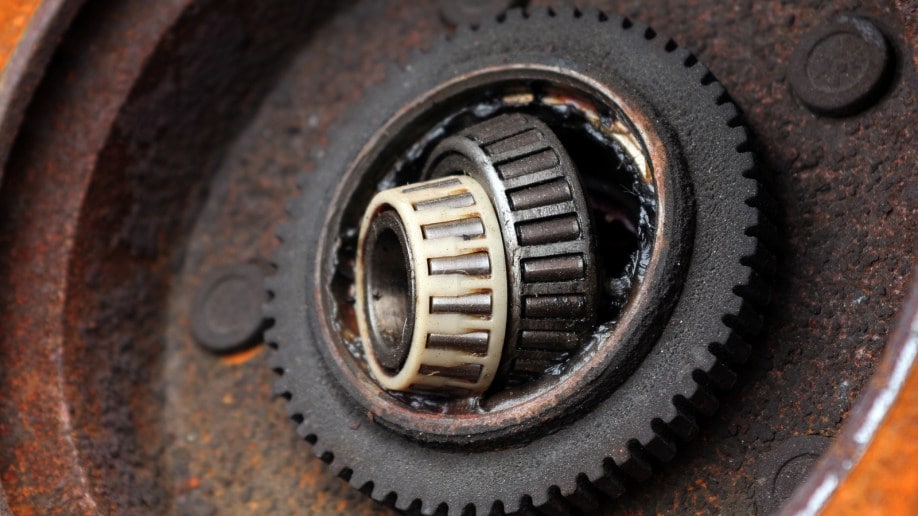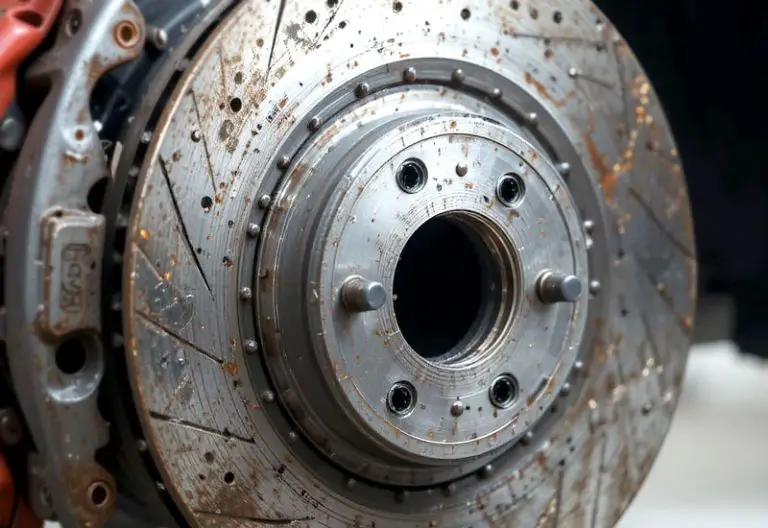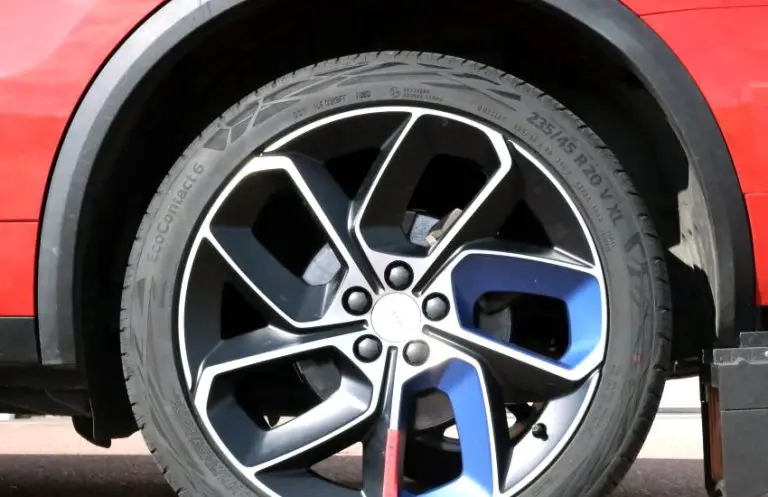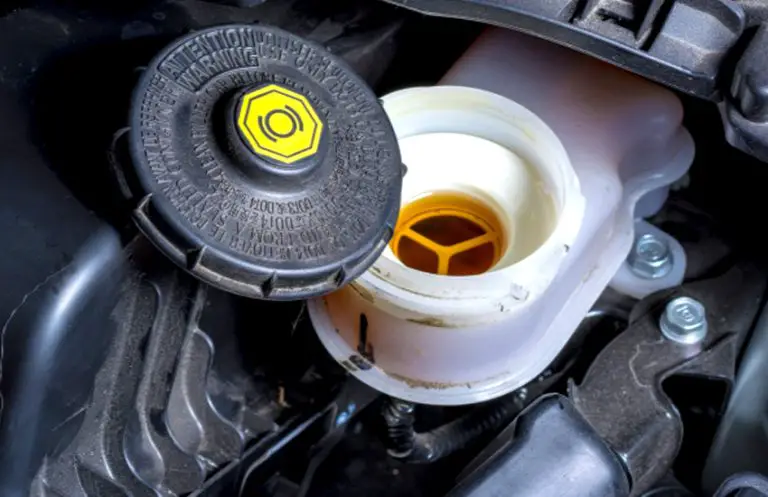Yes, abs can cause a caliper to stick due to a malfunction in the anti-lock braking system. When the abs system is faulty, it may improperly apply the brakes, causing the caliper to seize and the wheel to lock up.
This can lead to uneven brake wear, reduced braking effectiveness, and potentially unsafe driving conditions. It’s important to have any issues with the abs system diagnosed and repaired by a qualified mechanic to ensure optimal vehicle performance and safety. Regular maintenance and inspections of the abs system can help prevent caliper sticking and other brake-related problems.
Understanding the potential impact of abs malfunctions on caliper performance is crucial for maintaining a safe and reliable braking system.
1. How Abs Works
1. How ABS Works
1.1 Abs Overview
ABS, or Anti-lock Braking System, is a crucial safety feature in vehicles that prevents wheels from locking up during sudden braking.
1.2 Abs Components
- Wheel Speed Sensors
- Hydraulic Control Unit
- Brake Lines
- Electronic Control Unit
ABS helps maintain steering control and stability by regulating brake pressure to each wheel during emergency stops.
Wheel speed sensors detect if a wheel is about to lock up, sending signals to the electronic control unit.
The hydraulic control unit then adjusts brake pressure to the specific wheel, allowing it to continue rotating.
2. Common Causes Of Caliper Sticking
2. Common Causes of Caliper Sticking
2.1 Brake Fluid Contamination
Brake fluid contamination is a common cause of caliper sticking due to dirt or moisture entering the brake system.
2.2 Corrosion Or Rust
Corrosion and rust can lead to caliper sticking, affecting the smooth movement of the caliper components.
2.3 Caliper Piston Seals
Damage to caliper piston seals can cause them to fail, resulting in caliper sticking issues.
2.4 Slide Pin Issues
Issues with slide pins can prevent the caliper from moving freely, leading to sticking problems.
3. Understanding Abs And Caliper Sticking
When it comes to brake performance, a common issue that many drivers may encounter is caliper sticking. This occurs when the brake caliper fails to release properly, causing the brakes to drag and eventually wear out. While there can be several reasons behind caliper sticking, one factor that can contribute to this problem is the interaction between the ABS (Anti-lock Braking System) and the braking system itself.
3.1 Interaction Between Abs And Braking System
The ABS is a safety feature that prevents the wheels from locking up during sudden braking or on slippery surfaces. It achieves this by modulating brake pressure to each wheel individually, allowing the driver to maintain steering control while braking. The ABS system is interconnected with the braking system, using sensors to monitor wheel speed and a control module to adjust brake pressure as needed.
3.2 How Abs Can Contribute To Caliper Sticking
While the ABS plays a crucial role in enhancing safety, its interaction with the braking system can inadvertently lead to caliper sticking. One common scenario is when the ABS control module malfunctions, causing it to continuously apply brake pressure to a specific wheel even when the driver is not braking. This constant pressure can cause the caliper piston to seize inside the caliper housing, resulting in caliper sticking.
Moreover, the ABS system relies on various sensors, such as wheel speed sensors, to monitor the rotational speed of each tire. If these sensors become dirty or damaged, they may provide inaccurate information to the ABS control module. Consequently, the module might apply unnecessary brake pressure, leading to caliper sticking.
Another potential contributor to caliper sticking is brake fluid contamination. Over time, brake fluid can accumulate contaminants such as moisture, dirt, and debris, which can affect the proper operation of the ABS system. These contaminants can cause the ABS control module to malfunction, resulting in erroneous brake pressure application and potential caliper sticking.
To prevent caliper sticking caused by ABS-related issues, regular brake system maintenance is vital. This includes checking and cleaning the sensors, inspecting for any signs of brake fluid contamination, and ensuring the ABS control module is functioning correctly. Additionally, if you notice any symptoms such as a dragging sensation, excessive brake pad wear, or uneven braking, it is important to have your vehicle inspected by a qualified technician to address the issue promptly.
Understanding the interaction between the ABS and caliper sticking can help drivers recognize potential problems and take appropriate actions to maintain the reliability and safety of their braking system. By staying proactive and performing regular brake maintenance, drivers can minimize the risk of caliper sticking and ensure optimal brake performance.
Credit: www.quora.com
4. Symptoms Of A Sticking Caliper
When a caliper sticks, it can cause various symptoms that negatively affect the performance of your vehicle. Understanding these symptoms is crucial in diagnosing and addressing the issue. Below are the four main symptoms of a sticking caliper:
4.1 Uneven Braking
Uneven braking can occur when one of the calipers is sticking, causing the affected wheel to brake at a different rate than the others. This results in the vehicle pulling to one side and can be felt as a noticeable difference in braking force between the left and right wheels.
4.2 Vehicle Pulling To One Side
If your vehicle pulls to one side during braking, it may indicate a sticking caliper. The affected wheel will apply more or less braking force than the others, causing the vehicle to pull to one side instead of stopping in a straight line.
4.3 Excessive Heat Or Smoke
Excessive heat or smoke emanating from the affected wheel is a clear sign of a sticking caliper. The friction caused by the constant contact between the brake pad and rotor generates heat, leading to smoking or even visible signs of excessive heat in severe cases.
4.4 Abnormal Brake Pad Wear
Abnormal brake pad wear such as uneven thickness or premature wear on one side of the pad can indicate a sticking caliper. This is a result of the caliper not releasing properly, causing it to continuously apply pressure on one side of the brake pad.
5. How To Diagnose A Sticking Caliper
Diagnosing a sticking caliper is crucial for ensuring the safety and performance of your vehicle. Here are several methods to help you identify and address this issue effectively.
5.1 Visual Inspection
During a visual inspection, check for signs of irregular wear on the brake pads and rotor. Look for any build-up of brake dust or corrosion, as this can indicate a caliper sticking problem. Additionally, inspect the caliper for any physical damage, such as leaks or corrosion, that may be causing it to stick.
5.2 Brake Performance Test
A brake performance test involves driving the vehicle and paying close attention to any pulling to one side or uneven braking. Uneven braking pressure can be a sign of a sticking caliper. Take note of any vibrations or unusual noises during braking, as these may also point to a sticking caliper issue.
5.3 Brake Fluid Analysis
Performing a brake fluid analysis can reveal potential issues with the caliper. Check the brake fluid for any discoloration or contaminants. Dark or murky brake fluid could indicate corrosion or debris within the caliper, which may be causing it to stick.

Credit: www.kbb.com
6. Steps To Resolve A Sticking Caliper
When your vehicle’s caliper sticks, it can cause uneven brake wear and potentially compromise your safety on the road. Taking immediate action to address this issue is crucial. Fortunately, there are several steps you can take to resolve a sticking caliper and restore proper function to your braking system. In this section, we will discuss three effective methods: cleaning and lubricating the caliper, repairing or replacing caliper components, and bleeding the brake system.
6.1 Cleaning And Lubricating The Caliper
To begin, inspect the caliper for dirt, debris, and rust, which can contribute to a sticking caliper. Use a suitable cleaner and a wire brush to remove any buildup or corrosion from the caliper housing and slides. Once clean, apply a high-quality lubricant to the caliper slides, ensuring smooth movement. This will help prevent friction and sticking.
6.2 Repairing Or Replacing Caliper Components
If cleaning and lubrication do not resolve the issue, it may be necessary to repair or replace certain caliper components. Disassemble the caliper and inspect the piston and seals for damage or wear. Replace any worn or damaged parts with new ones that are compatible with your specific caliper model. Ensure proper installation and tightness of all components during reassembly.
6.3 Bleeding The Brake System
Bleeding the brake system is crucial to remove air bubbles that can cause caliper sticking. Begin by locating the brake bleeder valve on the caliper. Connect a clear plastic hose to the valve and submerge the other end in a container filled with brake fluid. With the help of an assistant, open the valve and have them apply pressure to the brake pedal. As the pedal is pressed, air bubbles will be expelled through the hose, and fresh brake fluid will replace them. Repeat this process until only clean fluid is seen exiting the hose.
In conclusion, resolving a sticking caliper requires taking proactive steps to ensure the safety and performance of your vehicle’s braking system. By cleaning and lubricating the caliper, repairing or replacing damaged components, and bleeding the brake system, you can effectively address the issue and restore proper function to your brakes.
7. Preventive Maintenance Tips
When it comes to ensuring the optimal performance of your brakes and preventing a sticking caliper, following preventive maintenance tips is essential.
7.1 Regular Brake Fluid Flush And Replacement
Regular brake fluid flushes prevent contaminants from affecting caliper operation.
7.2 Inspection And Lubrication Of Caliper Components
Inspect caliper components periodically to ensure smooth operation. Proper lubrication prevents sticking.
7.3 Proper Cleaning Of Brake System
Thoroughly clean the brake system to remove debris that can cause caliper issues.

Credit: www.reddit.com
8. The Role Of Professional Mechanics
8. The Role of Professional Mechanics
8.1 When To Seek Professional Help
When experiencing persistent caliper issues, seek assistance from professional mechanics.
Professional help is crucial for accurate assessment and repairs.
8.2 Importance Of Proper Diagnoses And Repairs
Proper diagnoses by professionals ensure correct problem identification.
Effective repairs by experts prevent future caliper sticking.
Conclusion
It is crucial to address any potential issues related to ABS and caliper sticking. Although ABS itself may not directly cause a caliper to stick, it can exacerbate existing problems. Regular maintenance and inspections are essential to ensure the proper functioning of both the ABS and the caliper.
By staying proactive and addressing any issues promptly, you can enhance the overall safety and performance of your vehicle.


